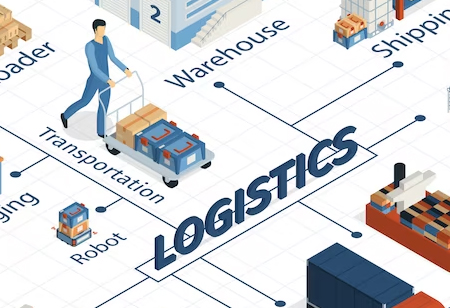Logistics is a critical component of any business. It involves planning, organizing, coordinating, and controlling resources to efficiently move goods from one place to another. Logistics includes physical and informational management activities necessary for the successful movement of materials, products, and services. Depending on their needs or goals, businesses may use several types of logistics.
Types of logistics
There are many types of logistics available for businesses to choose from, including:
Domestic shipping logistics: Domestic shipping logistics refer to transporting goods within a single country or region. This service focuses on safety protocols, timely delivery, and cost savings strategies. Some domestic shipping options include rail freighting, road transportation, air freight, and sea transport.
International shipping logistics: International shipping logistics deals with the complex process of transporting goods to and from countries across the globe. This service requires more planning and coordination due to differing regulations, customs rules, currency exchange rates, political issues, and language barriers. International shipping can include ocean vessels, aircraft, or a combination.
Inventory management logistics: Inventory management logistics is responsible for tracking inventory levels and reordering products when necessary. This service analyzes customer orders and demand patterns to determine the most efficient way to store and distribute products. Automated systems can keep track of inventory levels, so businesses are always prepared for any changes in demand or supply chain issues.
Warehouse logistics: Warehouse logistics focuses on the movement of goods within a warehouse. This includes finding the most efficient ways to store, organize, and ship materials to reduce costs while maximizing customer satisfaction. Warehouses are typically responsible for receiving shipments, packaging items, creating shipping labels, and dispatching orders as needed.
Reverse logistics: Reverse logistics refers to the process of returning used or damaged products to
